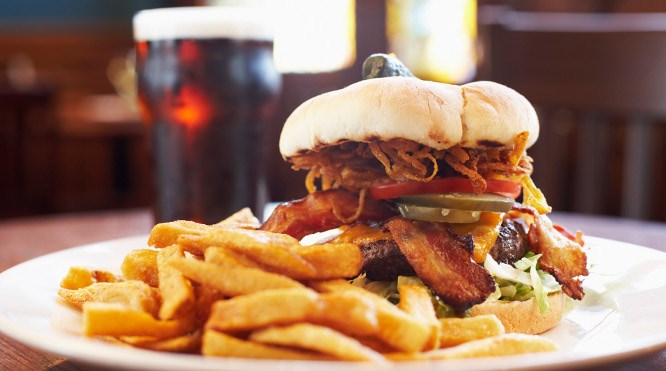Nickel Belt MPP France Gélinas scored a double victory Oct. 9.
Not only did the province pass legislation to ban minors from using tanning beds — something she's been pushing for five years — the government also announced it was adopting another private member's bill she introduced in 2012.
That legislation, which Health and Long-Term Care Minister Deb Matthews said she will introduce in the spring, would require large chain restaurants to include calorie information on their menus.
While large chain restaurants currently provide nutrition information about their menu items, it's usually on a pamphlet or on the restaurant's website, and very few people access that information, Gélinas said.
But when calorie counts are right on the menu, one in two people will use it to make food choices, said Gélinas, the NDP's health and long-term care critic.
Quite a bit is known about the subject because similar legislation has been in place in New York state since 2007, and its effectiveness there has been studied, she said.
“We see that in general, if you post the calories, restaurants actually make more money, and the average order is something like 369 less calories than in restaurants that don't post,” Gélinas said.
“You also saw some of the recipes have been changed because once people saw how many calories was in a menu item, they stopped ordering it.”
Small restaurants won't be covered by the legislation, as they don't have standardized recipes, and don't know how many calories are in their menu items, she said.
Matthews told the Globe and Mail the legislation is what parents have been asking for. “We’re making the healthy choice the easy choice for parents,” she said.
In terms of the tanning bill, Gélinas said “it felt very good” to see it finally pass.
Besides banning youth under the age of 18 from using tanning beds, it would require operators to request identification from anyone who appears under 25 years old and post signs about the health risks of tanning, among other measures.
Gélinas first introduced the private member's bill in 2008, but even though her bill had widespread support, something has always happened to prevent it from becoming law, including an election call and two prorogues of the legislature.
When Matthews approached Gélinas last winter and asked if she could adopt it as a government bill, she said yes, as she felt she didn't have anything to lose.
While the fractious nature of the legislature prevented it from passing last spring, the government fast-tracked the bill this fall, and it became law Oct. 9. Gélinas said the bill gives businesses that have tanning beds six months to come into compliance before the new law is enforced.
“My first response is this will save lives,” she said.
“There is no doubt in my mind ... This is an issue I've been following for five years ... The science is there, the link is there, it is real.
“Using tanning beds causes cancer. The risk and effect has been studied a whole lot in the last five years. It is pretty scary.”
Join Sudbury.com+
- Messages
- Post a Listing
- Your Listings
- Your Profile
- Your Subscriptions
- Your Likes
- Your Business
- Support Local News
- Payment History
Sudbury.com+ members
Already a +member?
Not a +member?
Sign up for a Sudbury.com+ account for instant access to upcoming contests, local offers, auctions and so much more.
